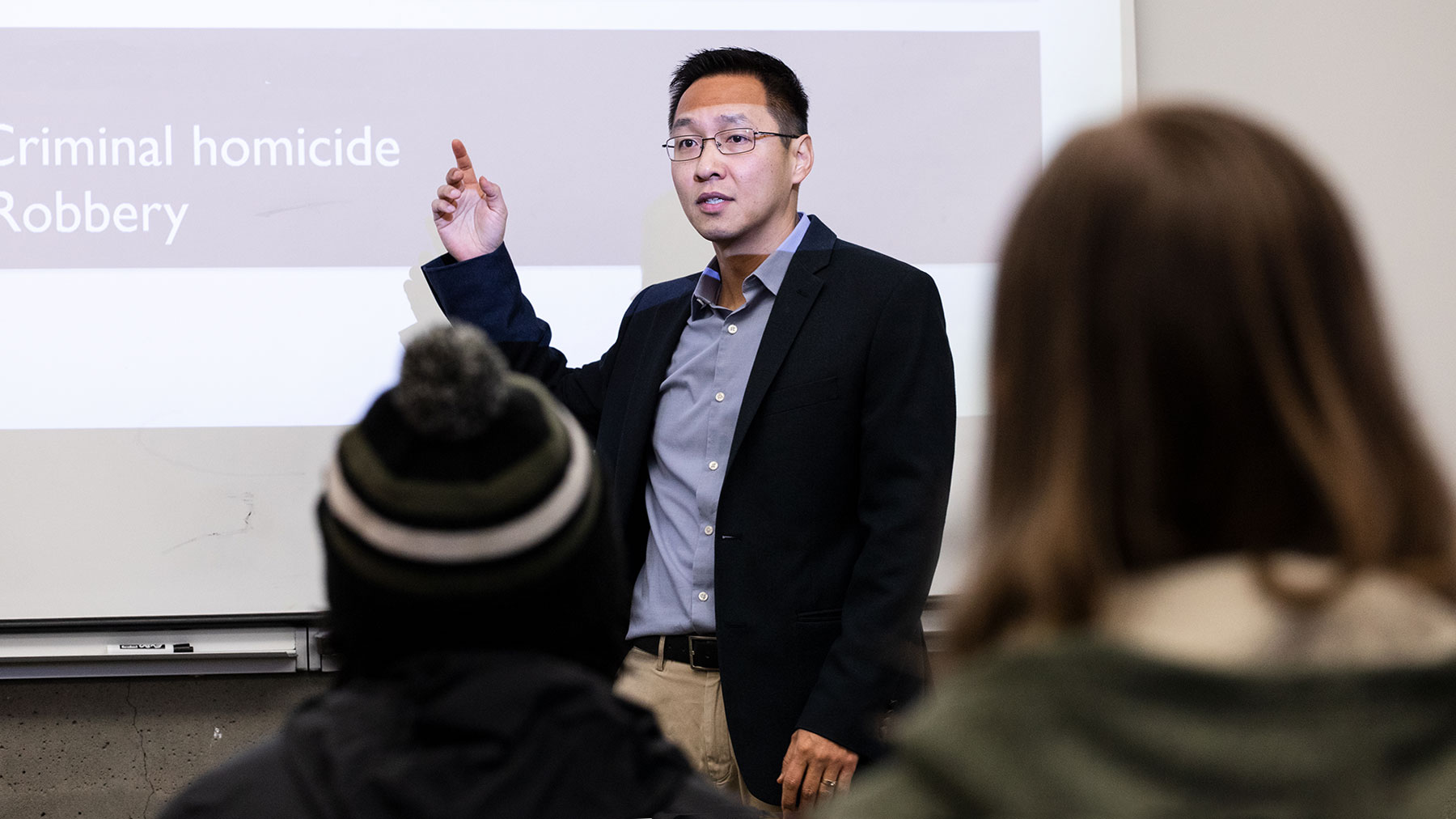At A Glance
Program Type
Minor
Accreditation
Northwest Commission on Colleges and Universities (NWCCU)
Versatility
Learn skills for careers in law, social work, psychology and more
Faith
Christian integration with coursework

If there was ever a time we needed people to be well-versed in criminology and the legal system, it is now. We continue to have a critical need for those who can knowledgeably contribute to the conversations, take action, and pursue justice following the example of Christ.
The core values of our program are social justice and service, and we provide an education that backs up those values. Jesus served, so we serve. It’s as simple as that. And we seek to “walk humbly, love mercy, live justly” (Micah 6:8) as contributors to the criminal justice professions.
If you want to make a difference through public service – in law enforcement, the courts and correctional systems, social welfare, or related private industries – consider a minor in criminal justice, which provides broad information about criminology and the legal system for those interested in careers related to crime and victimization.
The 18-credit-hour curriculum can be completed by students majoring in any field, but it is particularly relevant for individuals completing degrees in sociology, social work, politics, computer science or psychology.
Courses / Curriculum What Will I Study?
Career Outlook What’s After George Fox
Graduates from criminal justice programs are employed at municipal, county, state, and federal levels of government throughout the United States, serving in positions such as probation officers, parole officers, police officers, law enforcement personnel, juvenile workers, private security, correctional institutions, and human services. Many students ultimately go on to graduate school, including law school.
- Police and detectives: 3% growth from 2022 to 2032
- Social workers: 7% growth
- Lawyers: 8% growth

Sara Eccleston
My education at George Fox has been fundamental to shaping the way I understand the world and make decisions about how to live. I learned the important connections between power structures in society and theories to understand it all, and heard a Christian voice in the midst of sometimes hopeless statistics. My professors helped me to think critically, encouraged my questions, taught me how to research and gave voice to the parts of society that are often overlooked.
Request Information
